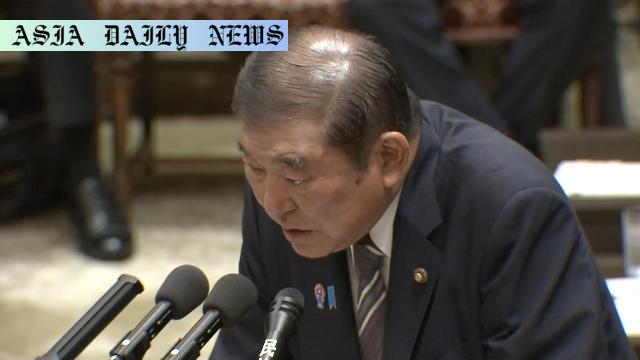Tariff Talks: Japan plans to analyze US-China trade agreements to gain vital insights before upcoming negotiations with the US.
Japan plans to analyze the US-China trade deal to prepare for its next round of tariff talks with the US.
Prime Minister Ishiba emphasizes cooperation for mutual national interests between Japan and the US.
Economic Minister Akazawa vows to protect Japan’s critical sectors during negotiations.
Some officials see potential positive impacts of the US-China deal on the global market.

Japan’s Strategic Analysis of the US-China Trade Deal
The recent US-China trade agreement, which involves the mutual reduction of tariffs by 115 percentage points, has ignited global interest, particularly in Japan. As the geopolitical and economic spotlight focuses on Japan’s upcoming tariff discussions with the United States, the Japanese government is keen to capitalize on the lessons learned from this major accord. The relevancy of such negotiations cannot be overstated, especially at a time when financial markets are as volatile as ever. By understanding the intricacies of the US-China agreement, Japan aims to enhance its position in talks while protecting its national interests.
Prime Minister Ishiba Shigeru reinforced these sentiments in his recent address to the Diet. He expressed determination to strike an agreement that serves both nations’ national interests—illustrating a marked effort to foster cooperative rather than competitive economic relations. His remarks signify a shift in Japan’s policy approach, focusing on collaboration tailored to both its strengths and vulnerabilities. This framework could set a precedent for other nations engaging in bilateral discussions with the United States.
Seeking Balanced Strategies Amidst Economic Stakes
Economic Revitalization Minister Akazawa Ryosei has provided further assurance that Japan stands firm in safeguarding vital industries and sectors throughout the negotiation process. With economic revitalization being a cornerstone of Akazawa’s tenure, the upcoming talks with the United States will be a critical test of his ability to navigate complex economic and diplomatic waters. He has emphasized the government’s unified stance and its unwavering priority on securing a deal that maximizes benefits for the Japanese economy.
The US-China trade deal acts as both a reference point and a cautionary tale for Japan. While cutting tariffs may stabilize certain market volatilities, the long-term impacts must also be weighed as part of Japan’s risk assessment matrix. Furthermore, Japan’s strategic evaluation isn’t limited to the US-China deal; it also intends to study earlier economic pacts, such as the US-UK agreement, to extract as many insights as possible. By doing so, Japan highlights the importance of comprehensive, data-driven policymaking in the modern economic landscape.
Calming Global Markets Through Cooperation
What adds to the complexity is the widespread speculation about Washington’s evolving stance on international tariffs and the possible shift in its trade policies. Some Japanese government officials view the US-China deal favorably, believing it may diffuse recent tensions in financial markets and pave the way for more stable global economic conditions. This analysis resonates with the belief that sound trade policies can enhance systemic resilience in international markets. In light of these developments, Japan faces both immense opportunities and considerable challenges as it maneuvers through these pivotal discussions.
The Japanese government has shown commendable foresight and preparation in its approach to analyzing economic developments from both a domestic and international perspective. Their emphasis on strengthening bilateral relations highlights a critical principle—that mutual benefits, when aligned with national priorities, can drive constructive outcomes. As the future of trade negotiations unfolds, Japan’s actions are likely to serve as a template for other nations seeking to navigate the intricate tapestry of modern global commerce.
The Path Ahead
As Japan gears up for its third round of tariff negotiations with the United States, the stakes are undeniably high. The US-China pact underscores the profound economic and political dynamics underpinning such agreements. With strategic evaluation and a clear-eyed understanding of both opportunities and risks, Japan’s approach is methodical. The success of these efforts will not only affect bilateral economic relations but also potentially influence broader global trade trends. Japan’s objective remains clear: to secure a deal that bolsters its economic prosperity while fostering productive economic relations with the United States.
Commentary
The Importance of Proactive Trade Strategies
The recent developments surrounding the US-China trade deal and Japan’s subsequent analysis reflect a recurring theme in global economics: the importance of proactive strategies. As Japan sets its sights on the next round of tariff negotiations with the US, its deliberate and thorough evaluation provides a benchmark for countries aiming to secure advantageous international agreements. Prime Minister Ishiba’s focus on bilateral cooperation and mutually beneficial outcomes showcases Japan’s pragmatism amidst a shifting global trade environment.
Lessons to Be Drawn from the US-China Agreement
What stands out about Japan’s analytical approach is its inclusive scope. By delving into the US-China trade deal, along with prior agreements like the one with Britain, Japan is ensuring that its policies are informed and innovative. Such diligence is commendable, especially since trade negotiations have far-reaching consequences for domestic industries and global markets. Japan’s focus on protecting its critical sectors, as highlighted by Economic Revitalization Minister Akazawa Ryosei, is a testament to strategic prioritization.
How Japan Can Lead as a Diplomatic and Economic Example
Furthermore, Japan’s vision extends beyond self-interest. Japanese officials recognize the potential ripple effects of a stabilized financial market—influenced by effective and thoughtful trade deals. This awareness showcases an understanding that today’s trade agreements hold power beyond domestic boundaries and that collaborative efforts can foster global economic stability. Such awareness positions Japan as a model of nuanced and responsible policymaking during a complex, fragmented era of international relations.
Japan’s preparations reiterate the value of adaptability and careful analysis in achieving successful outcomes. By maintaining this trajectory, Japan may set a new standard for balancing national interests while contributing to the global economic ecosystem.


